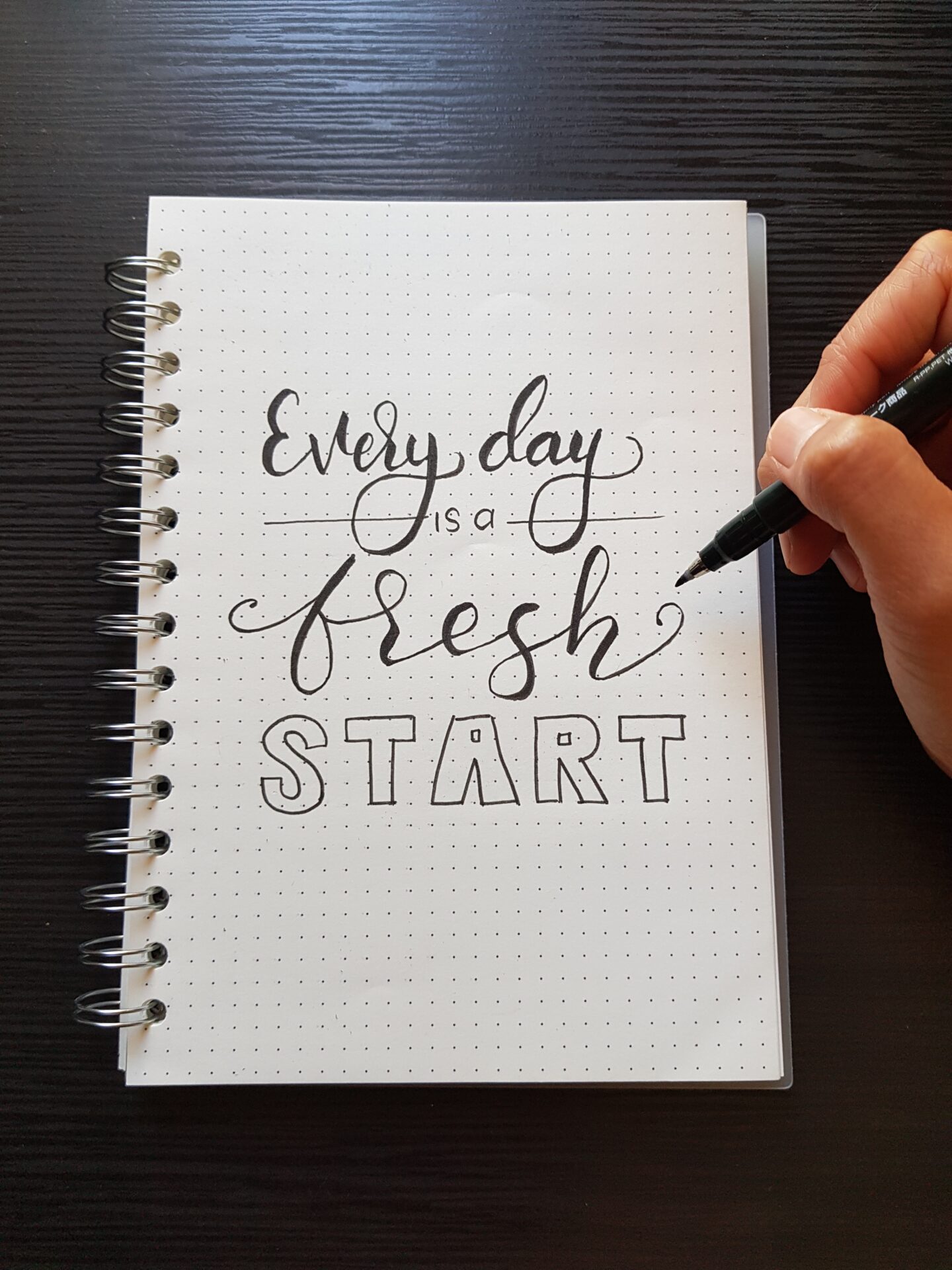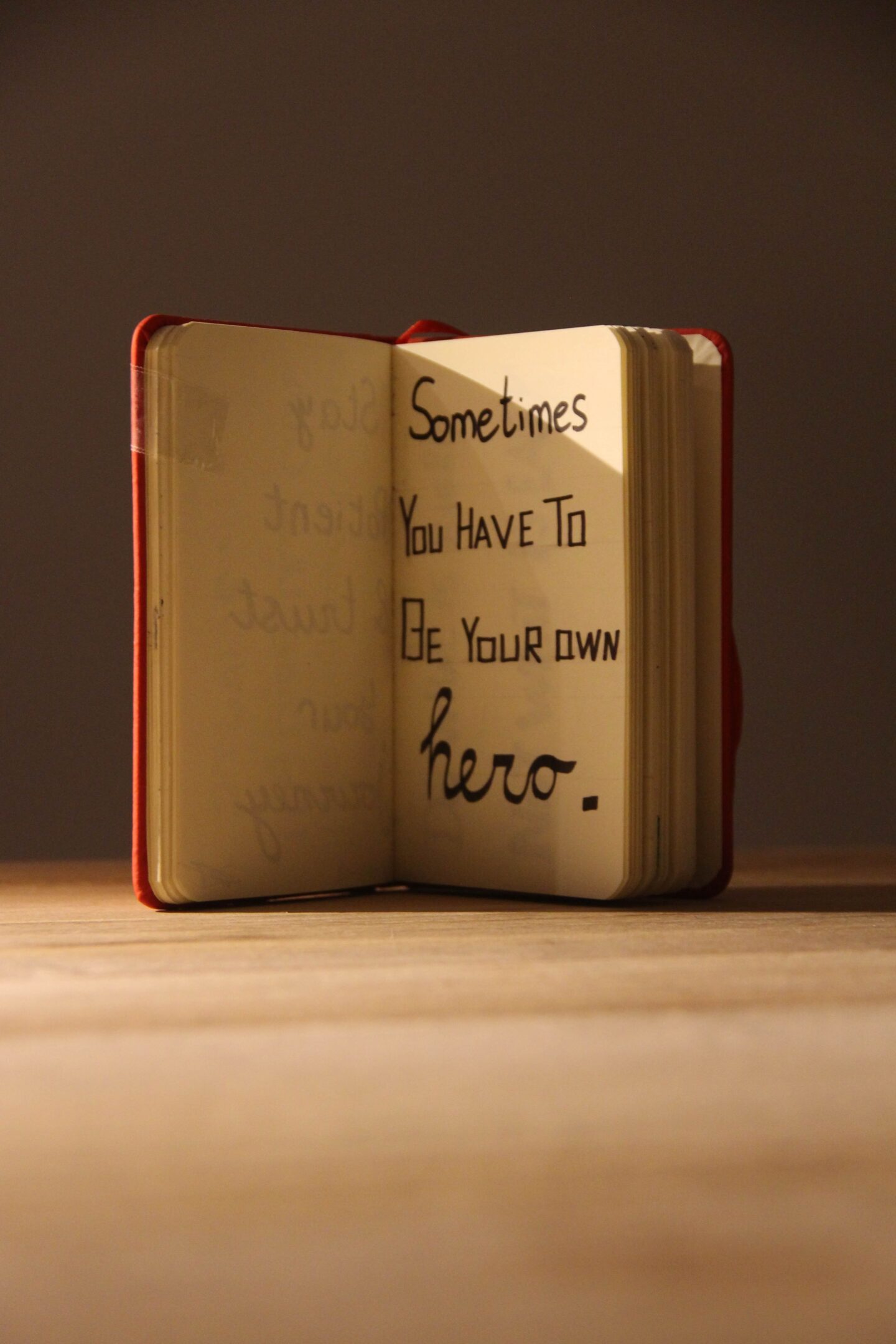
We live in a digital world where we’re glued to our phones and often find it difficult to disconnect. We’ve kind of lost the art of writing by hand. We’re used to tapping away on our laptops, phones and tablets.
When you’ve got a moment, get out a pen and paper. Yes, it seems really old school, but it’s very grounding. Write something down, anything. See how good it feels to put pen to paper again? It’s kind of freeing, isn’t it?
If you’re on a mission to switch off, writing on paper can be extremely therapeutic. It’s also excellent for your mental health and wellbeing. Got tons of thoughts swirling around in your mind? Don’t leave them there dragging you down. Jot them down in your journal, and you’ll start to feel just a little bit lighter.
In this article, we’ll explore the simple skill of journaling. It’s a tradition that’s been around for centuries.
It may be time to bring this age-old art back.
Have we truly lost this ability? Has the influx of typing taken over the good old pen and paper?
Here’s a bit of info on journaling and why you need to give it a go.
The benefits of journaling
Let’s start by digging into the benefits of writing things down and regular journaling.
- It helps you to organise your thoughts
- It gives you the creative freedom to explore ideas
- It helps you to have mindful moments where you can switch off from the outside world
- It enables you to learn more about yourself
- According to Positive Psychology, it can help us accept rather than judge our mental experiences
- It helps you practise gratitude
- There are physical and emotional benefit, too, according to studies
- It’s a way of creating a record of particular memories you may wish to reflect on
Ditch the blue light for white paper

One potential step in journaling is hiding away any blue light that is in the house. Put your phone down, pick up a dusty notebook or anything you have and write.
The first step is usually an unconscious thought; you tend to start with the biggest issue.
The daunting monster peering over your shoulder.
Whether it’s an annoying neighbour, a pet problem or simply parallel parking, jot that thought down. You never know where it might lead.
That’s the wonderful thing about writing stuff on paper, it brings ideas out that were hidden away in the depths of your mind.
By writing it down, you give it power. This sounds scary, but acknowledging the emotions tied to the issue helps to relieve any unsaid thoughts.
The effects of journaling in Psychosomatic Medicine found that by writing for at least 20 minutes a day, in three consecutive days, the healing of small physical wounds increased. The journalling processes varied; however, the participants of the study were encouraged to write about what was upsetting them.
By exposing all the raw emotions and thoughts surrounding you are actively engaging in positive affirmations. By getting to this stage of journaling, you begin to furiously itch to write more.
Journalling is for you
Often the advice is to write in a secluded room with any pen and any paper. This does not always achieve the best results because the best results don’t exist.
Journalling does not have a user manual because we all function differently. Some people might write a full-fledged soap opera, and others will jot down one sentence. Nevertheless, the impact can still be immense.
At the end of the day, we all struggle, and we can choose these words to work through things. Some helpful journaling tips include:
- Writing one word or sentence a day. Whatever you can manage. Start small.
- Try writing down the things that are bothering you the most and then throw them away (literally).
- Always pack your notepad and pen in your bag so you’ve got it nearby when a thought pops into your head that you want to write down.
- When you feel that urge to reach for your phone, grab your notepad instead.
- It’s handy to write down intrusive or stressful thoughts before you go to bed, so you can try and let them go.
Tracking your progress
One of the most cathartic parts of journaling is discarding those thoughts once you’re done. Often, writing down something that’s bothering you can enable you to move on from it and let it go.
Journaling might use up paper, but it can be a good insight inward into your soul. And outward. Once you can appreciate your thoughts, you are indirectly appreciating yourself. Look at our article on Self-care tips that take under 15 minutes to practise if you want to track your mental health.
Writing stuff down also enables you to transport your mind anywhere you wish. And the simple act of journaling can be done literally anywhere. On your bedroom floor, on a beach, on the bus, wherever.
Everyone knows some of our best thoughts come not when we’re sat down trying to think of things but when we’re in the shower, going for a walk or doing the washing up. You can’t predict when it will be useful to do a bit of journaling, which is why you always need that notepad handy!
However, it can be useful to plan some time to sit down and write. Pop a note in your diary at a regular time every day, and you’ll get into the habit of regularly journaling. Every day you’ll write and perhaps learn something different, and you’ve got your journals to look back on. If every day is a bit much, start small and try once a week.
Often our thoughts disappear, never to be seen again. Well, we’re here to remind you that your thoughts matter! If you start journaling now, imagine what amazing ideas and nuggets of information you’ll have in years to come. You’ll also learn a hell of a lot about yourself. So what are you waiting for? Start journaling now!
Article written by Leah Hardy – EDITED by Kiri

Journaling is a lost art in our digital age, but its benefits are undeniable. From organizing thoughts to fostering creativity and practicing gratitude, it offers a therapeutic escape from our fast-paced world.
A very Insightful article on Traditional Journaling in this digital world